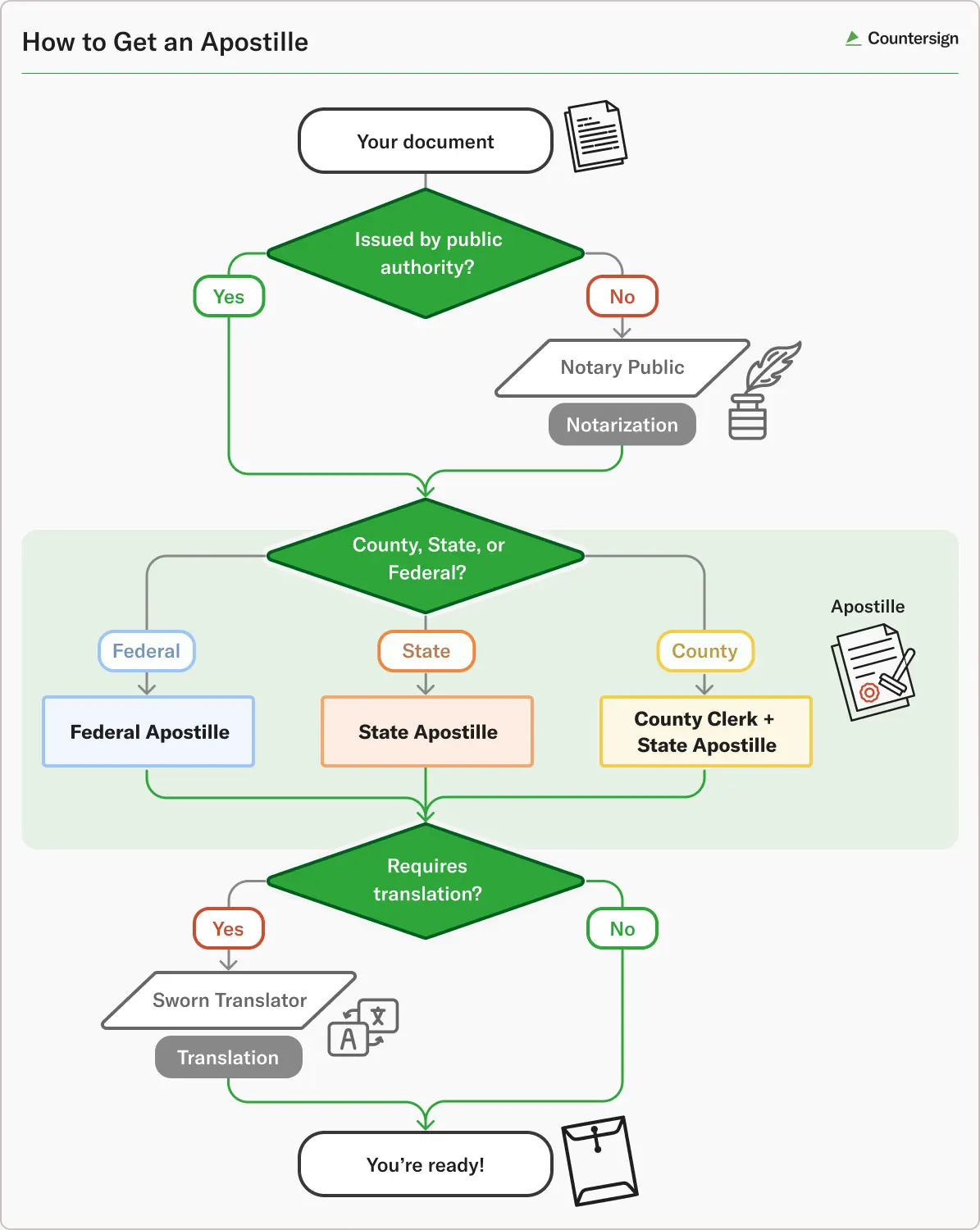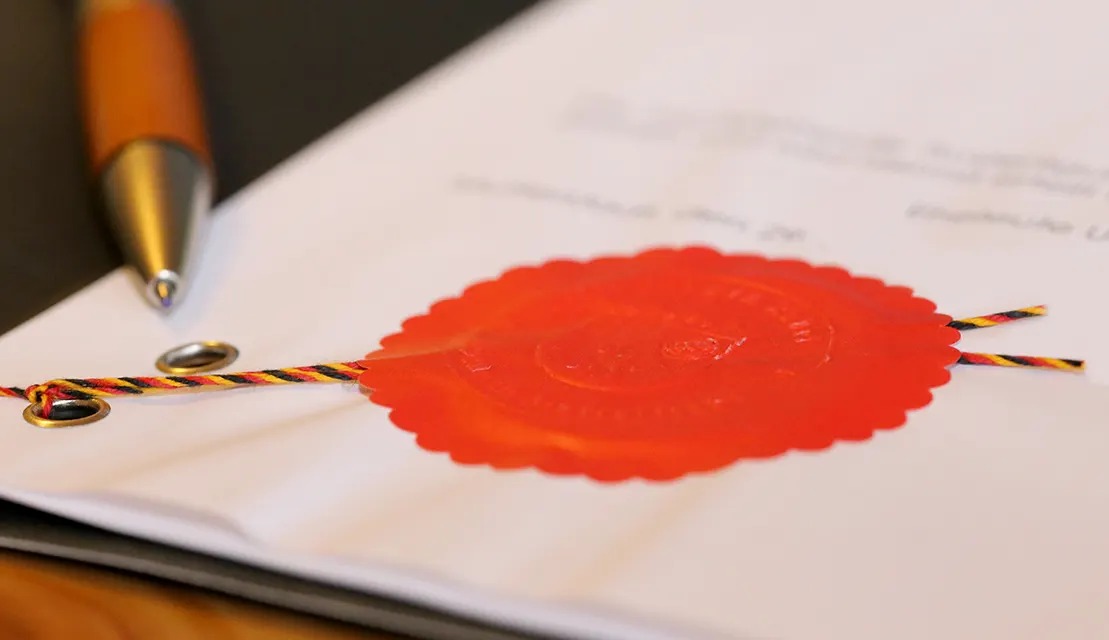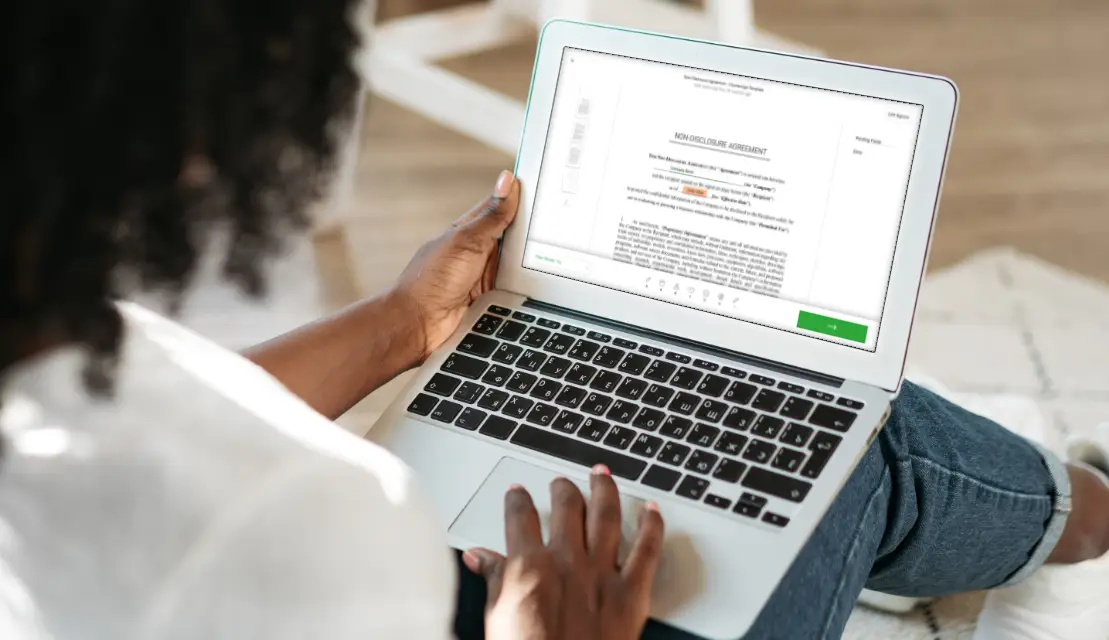An “Apostille” is a stamp that verifies a document comes from a public authority. It recognizes that the document is legally valid between two or more of the 113 countries that are part of the Hague Convention of 1961, such as on a birth certificate, power of attorney, or affidavit.
In other words, if you have a document from one country that you need to use in another, like a marriage certificate, an apostille stamp would make it legal. This may be required when you move abroad, travel the world, take care of loved ones in a foreign country, or have a legal dispute across borders. Apostilles can be issued for both original documents and their copies, and the process is simple.
How to Get an Apostille Stamp
The process of getting an apostille stamp on your document so that it will be recognized in other countries is easy.
- Verify if the document was issued by a public authority.
- If yes, move to step 2
- If no, have it notarized.
- Determine if it was issued at the federal, state, or county level and keep a note of which.
- Country documents: Certify with the county clerk of court and get the apostille from the State.
- State documents: Get the apostille from the Secretary of State. This applies to notarized documents from non-public authorities.
- Federal documents: Get the apostille from the US Department of State Authentication Office.
- Translate the document and the apostille to match the language of the country you will be submitting them to.
- Although documents only need to be verified, not translated, according to section 167 on page 61, in order to be apostilled by your local authority, the recipient country might still require a translation after the document is apostilled.
- Some countries, like Spain, Germany, and Romania, require you to use a “sworn translator” for the document to be recognized legally. You’ll see here that the US State Department requires foreign individuals to have some documents translated to English by a “certified translator,” as an example. Many countries have a publicly available list of sworn translators – check the specific country’s government website to find it.
The process is easy and, in many cases, can be completed in 5–7 business days.
How to Get an Apostille Document
Suppose your document, like your college diploma, isn’t authorized by the state or country you live in, but authorization is required in the country you’ll be working in. Or you need to have a copy created that is apostille. This is easy to resolve. Here are four situations and the actions you can take.

State-issued Documents
Contact the Secretary of State of that individual state. Depending on the document and state or region you live in, you can have it shipped to you, picked up, or applied for online.
Non-State-issued Documents that are Notarized
For documents like university diplomas or bank statements not issued by a public authority but notarized by a notary commissioned by a US state or the District of Columbia, go to the Secretary of State where the document was issued, or the Office of the Secretary for DC.
Documents bearing an eSignature, like work contracts and rental agreements, can also be notarized by a local notary. The notary should be able to discern the authenticity of the eSignature based on the paperwork you present to them.
County-issued Documents
For documents issued by the county, like property deeds and court records, which are not issued by a state authority and are instead notarized by a notary commissioned by a US state, you can certify your document at the clerk of court and then get your apostille from the Secretary of State of the individual state.
Federal Documents
For background checks and other documents issued by the federal government, you can get your apostille from the US Department of State Authentication Office.
If you find out you’ll need to get an apostille stamp for your document, don’t panic. It’s a fast and easy process.





